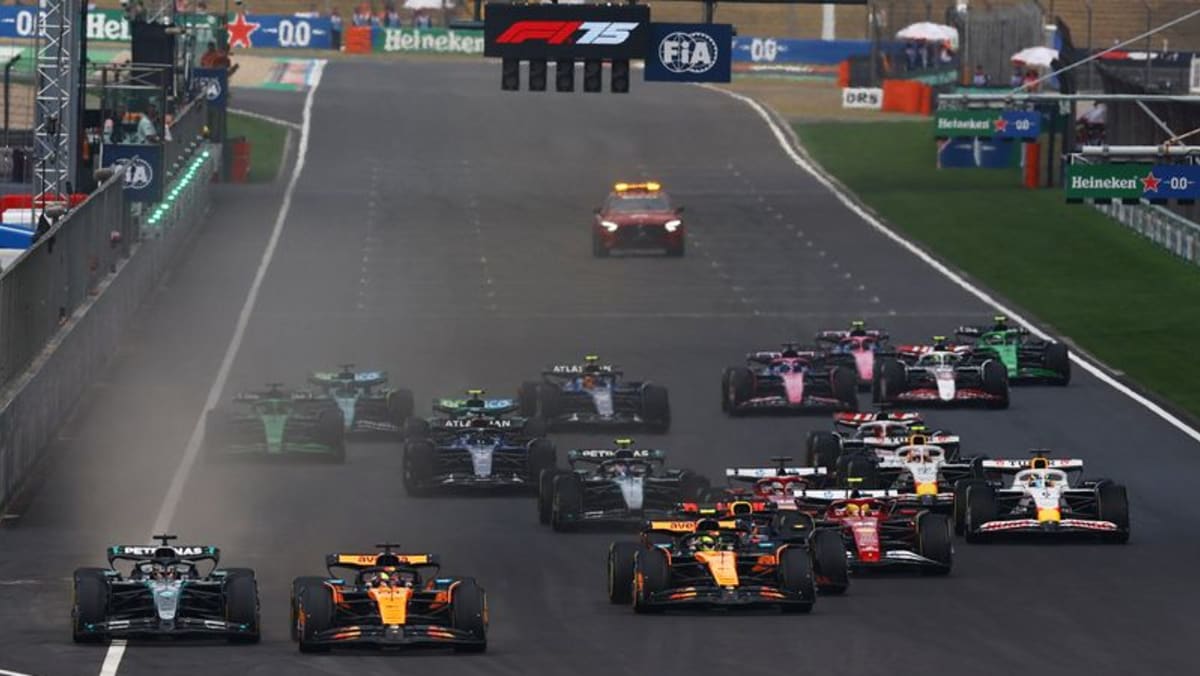LONDON : Formula One may have to wait a decade for a return to screaming V10 or V8 engines and jettisoning the next generation V6 due to be introduced next year is simply not feasible, according to F1’s former chief technical officer Pat Symonds.
The Briton, now executive engineering consultant for the Cadillac team due to debut next year, told Reuters any talk of potentially continuing with the current turbo hybrid beyond 2025 was a non-starter.
Formula One has been considering various directions including a return, powered by sustainable fuel, to the ear-splitting naturally-aspirated V10 engines that were last raced in 2005 and whose noise is still missed by many.
“I think there’s a lot of wishful thinking,” said Symonds after a panel discussion at the BlackBook Motorsport Forum in London.
“With so much invested in the 2026 engine it would be negligent to throw that investment away – particularly for the new people like Cadillac, Audi, Red Bull Powertrains who have had to start from scratch and produce an engine which needs a reasonable life to pay that back.
“Maybe it won’t have a 10-year life but it sure as hell needs more than a two-year life for something like that, because the risk otherwise is that Audi might just say ‘well, it’s not so long. We’re going to go’.”
The new engine era, a major upheaval for the sport, is due to run from 2026 to 2030.
Symonds said the sport did not have to follow five-year cycles, and recent F1 engines have had a lifespan of double that length. He dismissed “crazy ideas” of continuing with the existing engine.
“Audi can’t do that,” he said of the German manufacturer set to debut next year with its own engine after turning Sauber into a works team.
“We (Cadillac) have designed a car to fit a Ferrari 2026 engine. We suspect a Ferrari 2025 engine wouldn’t fit in that car.”
Red Bull are switching from Honda units to their own in-house built powertrain while Aston Martin move from Mercedes to Honda.
Symonds said a switch could happen eventually but a high-revving V8 made more sense than a V10 providing it was efficient, with a fuel flow limit and some mild hybridisation.
“I personally think a V10 is not necessarily a good racing engine,” he said.
“A V8 probably is. I often feel that the V10 was sort of the result of the discussion between whether we should have a V8 or a V12. It’s a typical sort of committee decision.”
He recognised noise was important to fans as part of the entertainment, but sustainability was key for sponsors, and said there should not be any knee-jerk reactions.
“We won’t go back to a V8 or a V10 or a V12 as it used to be many years ago,” he added. “We’ve learned an awful lot in the last 11 years now of how to run these engines very, very lean. And we need to continue with that.
“It must not be a retrograde step. We’ve got to keep pushing forward.”
